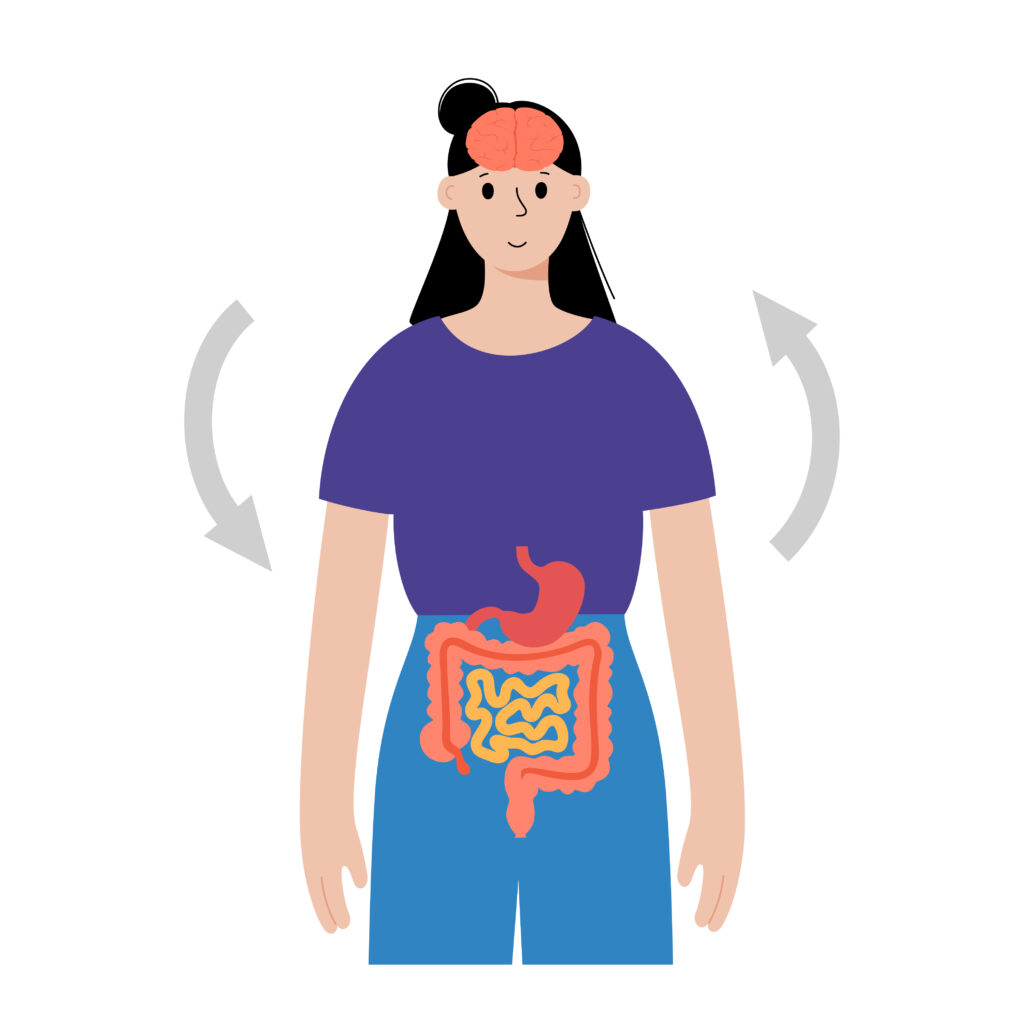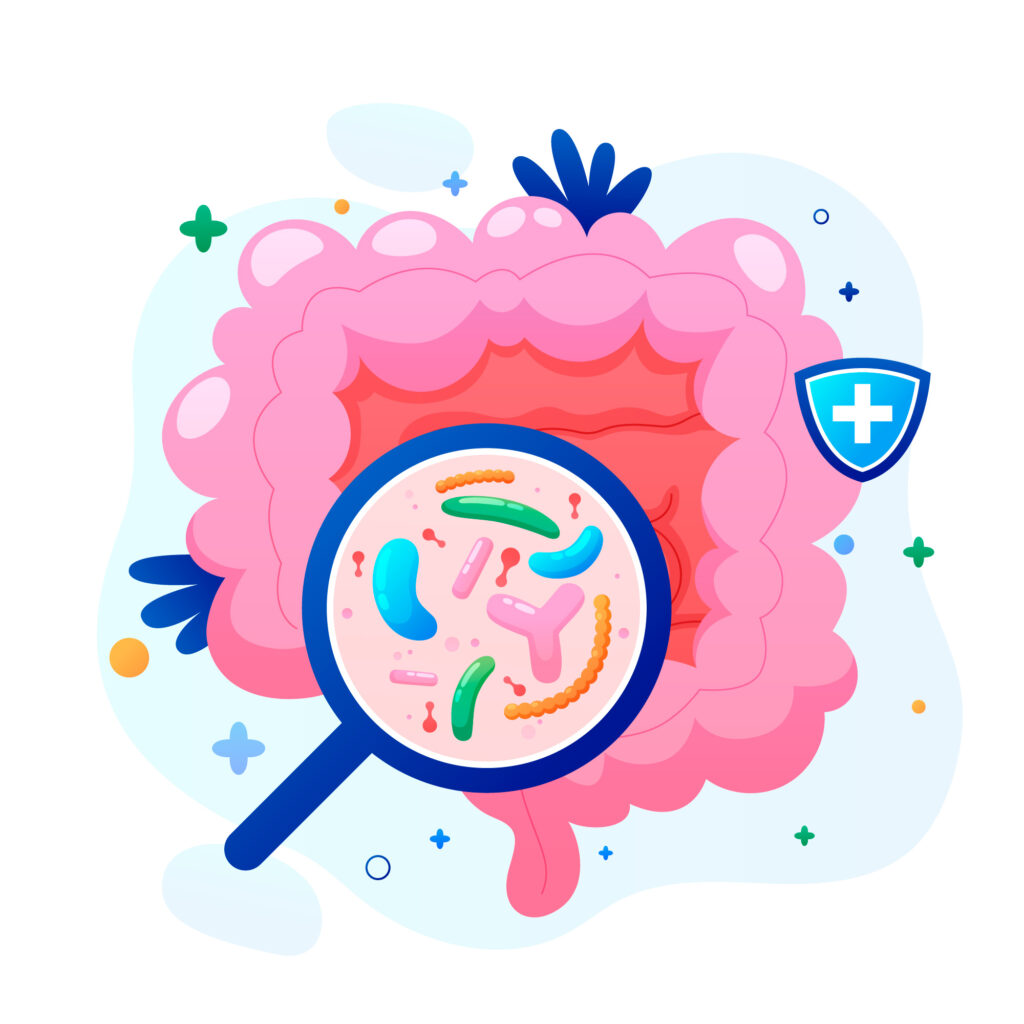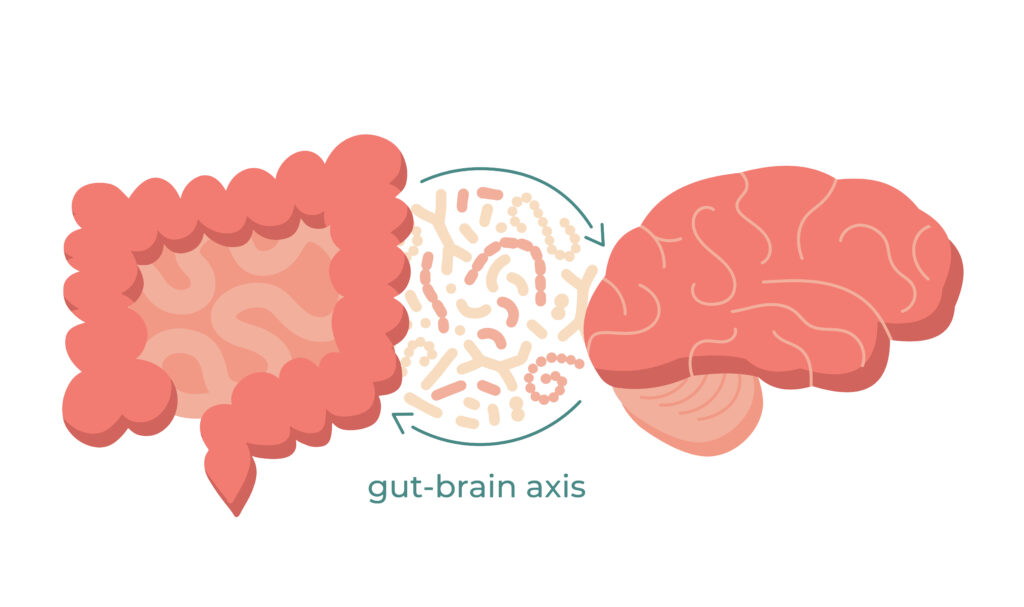Mind-Body Connection, an intricate relationship between mental and emotional well-being and dietary habits. Recent research has illuminated the undeniable link between our emotions and their influence on food choices and digestion.

The Gut-Brain Axis: A Two-Way Communication
Impact of Stress on Digestion
- Stress and Digestive Disorders: A study published in the journal “Gut” in 2018 examined the impact of psychological stress on gut health. It found that stress is linked with an increased risk of developing disorders such as irritable bowel syndrome (IBS) and inflammatory bowel disease (IBD). Stress can exacerbate symptoms and trigger flares in individuals already suffering from these conditions.

- Stress and Gut Microbiota: Research published in the journal “Psych neuroendocrinology” in 2020 explored the relationship between stress and gut microbiota composition. The study revealed that chronic stress can lead to significant changes in the gut microbiome. As a result it may contribute to digestive disturbances and overall gut health issues.
Emotional Eating: The Comfort Food Trap

- Emotion-Driven Cravings: A study in the “Journal of Neuroscience” in 2019 used functional magnetic resonance imaging (fMRI) to investigate how emotions influence food choices. The findings showed that emotional states, such as stress and sadness, can activate brain regions associated with cravings for high-calorie, pleasurable foods.
- Emotional Eating and Weight Gain: A long-term study published in the “American Journal of Clinical Nutrition” in 2017 followed participants for five years. It found a strong association between emotional eating and weight gain. Mainly among those who frequently turned to comfort foods when experiencing negative emotions.
Mindful Eating: The Antidote
- Mindful Eating and Digestion: A randomized controlled trial published in “Appetite” in 2018 demonstrated that individuals who practiced mindful eating experienced improved digestion and reduced gastrointestinal symptoms compared to those who did not engage in mindful eating practices. This suggests that mindful eating can positively influence digestive processes.
- Mindful Eating an Food Choices: Research in “Obesity” in 2016 indicated that mindful eating interventions can lead to healthier food choices. Participants who underwent mindful eating training showed increased awareness of food choices and greater preference for nutritious foods.

Cultivating Emotional Resilience for Better Digestion
- Stress Reduction and Gut Health: A study published in “Psychosomatic Medicine” in 2021 explored the effects of stress reduction techniques, including meditation and yoga, on gut health. It found that these practices led to improved gut microbiota diversity and reduced gastrointestinal symptoms in participants.
- Resilience and Coping Strategies: Research in the “Journal of Behavioral Medicine” in 2019 emphasized the importance of emotional resilience in managing the impact of stress on digestion. Developing coping strategies and emotional resilience can help individuals face the challenges of daily life. Hence, reducing the negative effects of stress on the gut.
Conclusion
The relationship between mental and emotional well-being, food choices, and digestion is the area of study that continues to uncover the depth of the mind-body connection. Understanding how stress and emotions influence our eating habits and gut health, one can prioritize both mental and physical wellness. Practicing mindful eating and developing emotional resilience are powerful tools that helps keep equilibrium between our minds and bodies. Ultimately leading to a more vibrant and balanced life, as supported by scientific research.



